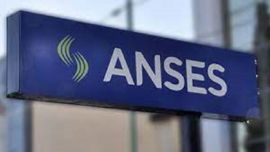Most of Argentina’s political leadership has a high ceiling of negative image, according to a new survey by the Universidad de San Andrés (UDESA).
According to the poll, voters of the ruling Frente de Todos and opposition Juntos por el Cambio coalitions all agree that inflation is the most urgent problem facing the country, while a huge 75 percent disapprove of President Alberto Fernández’s government.
Covering 1,043 respondents interviewed between May 27 and June 8, the survey was carried out across eight regions and is considered 95 percent reliable with a margin of error of +/- 3,15 percent.
The results reflect similar conclusions reached by other private consultants such as Opinaia, TresPuntoZero and Ricardo Rouvier y Asociados regarding the negative perceptions borne by the main leaders of all the national parties.
22 of 23
UDESA’s Survey of Political Satisfaction and Public Opinion (ESPOP in its Spanish acronym) was no exception. Broadly speaking, the negative came out on top with 22 of the 23 leaders when measuring their image. The only figure escaping this norm is Radical deputy Facundo Manes with more positive than negative – but 23 percent of respondents still do not know who he is.
"We’ve been registering for a long time that a negative evaluation of the entire political spectrum predominates. The leaders we measured are the main ones of the five strands in Argentina. The negative dominates with all of them. Until recently there were two exceptions: Javier Milei and Facundo Manes," said ESPOP director and political scientist Diego Reynoso in an interview.
Moving from top to bottom, the trio with the highest positive image are Buenos Aires City Mayor Horacio Rodríguez Larreta with 38 percent, PRO chair Patricia Bullrich with 36 percent and libertarian deputy Javier Milei with 34 percent. Manes follows with 32 percent. Ex-president Mauricio Macri is in 10th place with a total positive rating of 24 percent, but 41 percent more people think otherwise.
"Over the last two months the positive image of Milei has retreated, while his negative ratings have climbed. Manes (known to only 77 percent) has the advantage of his candidacy being yet to be nationalised without the exposure of Milei which somehow protects him from adding to his negative image," says Reynoso.
There is no Frente de Todos leader above 12th place, a position occupied by Vice-President Cristina Fernández de Kirchner with a positive image totalling 20 percent and a negative differential of -52 points. According to the latter aspect Buenos Aires Province Governor Axel Kicillof performs slightly better (-48 percent) and President Alberto Fernández, in 15th place, worse (-59 percent).
Inflation spans the grieta
Voters of both of the main coalitions agree that escalating prices is the leading issue facing the nation.
"For some time inflation has been a transversal issue and the current numbers say so," states Reynoso. The political scientist adds that both electorates agree there but then manifest different worries and agendas.
"These are problems for both but with different priorities. In Frente de Todos they are worried by more material questions and in Juntos por el Cambio more linked to the institutional. Frente de Todos would say that they have a very heavy economic agenda which requires results," he maintains.
After inflation Frente de Todos supporters lean towards poverty and low wages while those backing Juntos por el Cambio opt for corruption and crime.
"Corruption has not been an issue in the government of Alberto Fernández, whatever its other defects, yet the corruption issue has never ceased to be a worry for Juntos voters," adds Reynoso.
President’s approval
The numbers are overwhelming – three-quarters of those consulted disapprove of the Alberto Fernández administration (with 57 percent "strongly disapproving" and 18 percent "somewhat"), while only 21 percent approve (18 percent "somewhat" and three percent "highly approve").
Yet for the first time since the start of the coronavirus pandemic over two years ago there has been a slight pick-up in presidential approval, rising from 17 percent, while the disapproval dropped from 81 to 75 percent.
"The Alberto Fernández government has not only fallen due to the evaluation of economic issues. In March and April of 2020 his level of approval peaked at 67 percent and then started to fall until this slight pickup now. This is the first time that we have had a change in his approval," remarks Diego Reynoso.
Finally, the respondents were asked which parties or coalitions they would vote for if the 2023 presidential elections were held today.
The result placed Juntos por el Cambio in first place with 16 percent, followed by the libertarians (15 percent) and Frente de Todos (13 percent).
"The don’t knows numbered 23 percent, while six percent would vote blank or spoil their ballots. Finally, four percent would vote for a Peronist list which was not Frente de Todos, the same percentage accruing to the Frente de Izquierda leftists," concludes the UDESA report.




















Comments